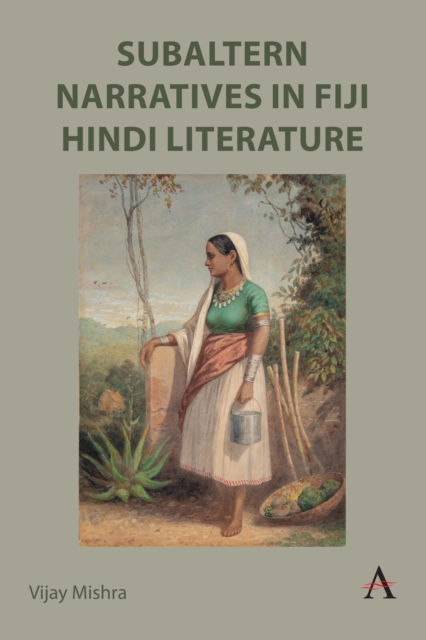
Subaltern Narratives in Fiji Hindi Literature EPUB
by Vijay Mishra
EPUB
Description
Subaltern Narratives in Fiji Hindi Literature is the first study of fiction written in Fiji Hindi. Its target texts are two extraordinary novels Dauka Puran ['A Subaltern Tale'] (2001) and Fiji Maa ['Mother of a Thousand'] (2018) by the Fiji Indian writer Subramani. They are massive novels (respectively 500 and 1,000 pages long) written in the devanagari (Sanskrit) script. They are examples of subaltern writing that do not exist, as a legitimation of the subaltern voice, anywhere else in the world. The novels constitute the silent underside of world literature, whose foundational form - the picaresque - it adapts and interrogates. For postcolonial, diaspora and subaltern scholars, they are defining (indeed definitive) texts without which their theories remain incomplete. Theories require mastery of primary texts and these subaltern novels, 'heroic' compositions as they are in the vernacular, offer a challenge to the theorist.
The argument of the book takes off from Gayatri Chakravorty Spivak’s well-known declaration (later modified) that ‘The subaltern cannot speak’. Through a close examination of the two novels – and with extensive translations of passages transliterated in the roman script – it is argued that the subaltern does speak but in her own language. The subaltern speech acts in the Fiji Hindi demotic (itself an amalgam of Hindi dialects with borrowings from English and Fijian) are both private and public: private in the sense that the language (which is not to be confused with Creole English or Patois French) is an outcome of a specific historically conditioned Fiji Indian plantation experience, and public in the sense that it can be read and understood by speakers and readers of standard Hindi.
Combining deep sensitivity to language and art, the book makes a very bold claim: these books are world literary texts to which the same kind of exhaustive criticism may be applied that one would with any other great work of literature. This book brings to the reader something that has never been done before. It challenges the subaltern theorist by stipulating (axiomatically) that to understand the subaltern, one must understand her own language and not depend on redacted accounts of their experiences in metropolitan or privileged languages be they French and English or Hindi and Arabic.
Information
-
Download - Immediately Available
- Format:EPUB
- Pages:226 pages
- Publisher:Anthem Press
- Publication Date:13/02/2024
- Category:
- ISBN:9781839990717
Other Formats
- Hardback from £80.00
- PDF from £22.50
Information
-
Download - Immediately Available
- Format:EPUB
- Pages:226 pages
- Publisher:Anthem Press
- Publication Date:13/02/2024
- Category:
- ISBN:9781839990717






